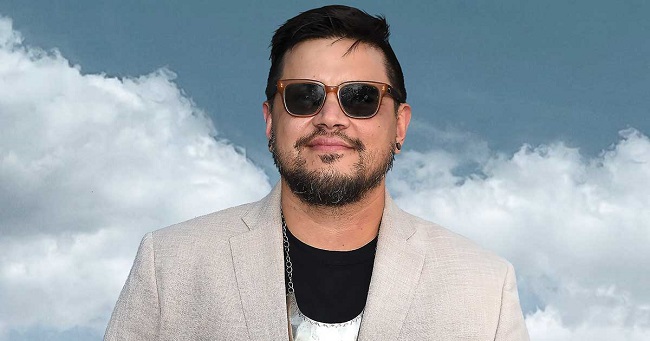Sterlin Harjo is a Native American director whose work you may have seen. He was responsible for one episode of “The Magicians” and created the hit series “Reservation Dogs” on FX. Harjo is a Native American artist who gives voice to Indigenous narratives.
Although Hollywood hasn’t always welcomed independent filmmakers like Harjo, with the rise of streaming services, that’s changed.
As November is Native American Heritage Month, Harjo told Variety that Native storytelling gave him the motivation to keep going when Hollywood wasn’t receptive to his ideas.

Why did you decide to uproot your filmmaking career and relocate to the City of Angels?
I participated in both the Sundance Writers’ and Directors’ Labs. It was a celebration of the craft of storytelling through writing and cinema. Because I didn’t have any prior experience on sets, it was a lot like boot camp for me. It made some things possible that ultimately weren’t.
After the 1990s, the early 2000s became the golden age of independent cinema. So, I came to L.A. with the hope of having my first feature film produced.
Of Course, you Know that Wasn’t the Situation.
Even before streaming was an option, it was clear after the first few discussions that nobody was interested in making Native films. Many would say things like, “This isn’t Native enough” or “Native films don’t sell.”
Someone Once Remarked that the Script Was Fantastic,
but that the movie would only get funded if Phillip Seymour Hoffman was attached to star in it. That’s just how things were back then in the business world. Not a soul around to engage in such multiculturalism chatter.
Furthermore, I have worked on a project and successfully sold it to a business. They told the developers, “Well, you can do it, but you have to do it without Sterlin.” Indeed, I had to take that in.
It Worked Out in the End. Yes, Things Did Alter.
A producer position on “Scalped” has been offered to me. They wanted to work with me as a consultant and on ideas. Doug Jones contributed to the creation of the show and served as one of its showrunners. As a result, they were able to create shows in which non-white persons with names could be the leads. Doug was friendly and gave me insight into the current state of the business world.
Which Ray of Hope did you Follow?
Not that I have anything against making a living, but that wasn’t my motivation. I felt compelled to share narratives with others. Since I was a kid, I’ve always wanted to tell stories since I come from a place where there are so many interesting ones. As a result, the monetary game was abandoned.
I was given the opportunity to share the perspectives of underrepresented groups. And by no means was I attempting to spread cheer with my tales. Both the bleak and the humorous tales have always interested me. I aimed to relay every experience that contributes to our humanity.
When we both weren’t busy with shows, I remember hanging out with Sierra Teller Ornelas (“Rutherford Falls”). There was a time when I thought about stating, “I might be hanging it up.” It’s funny to reflect on how seriously I took that. What kept me going, though, was the desire to share these tales and bring pride to my hometown.
What’s it Feel Knowing That Others Outside of the Native Community Want to Watch the Show, in Addition to the People Who Already Know and Love it?
During production of “Reservation Dogs,” I had a feeling the film would be well-received, but I had no idea it would become a cultural phenomenon.
The only explanation I can come up with is the freedom to make mistakes without fear of repercussions, as well as the disappointment of seeing unreleased films collect dust on my hard drive. After that, I was invited to perform on a show. As I took stock of the situation, I declared that we needed to go for broke.
It was a combination of that and FX allowing me to tell the story alongside Indigenous writers and giving us the freedom to do so. As a result, we were able to tell the story we had always imagined. We’d be able to create something stunning if we gave it our all.
How Does it Feel to be in a Position to Pave the Way for Newcomers to the Field?
Opening up opportunities for the next generation is one of my favourite things to do. As Halloween approached, it was heartwarming to see a number of children decked out as beloved characters from the programme.
People dressing up as Pocahontas or fake warriors on Halloween used to make me uncomfortable every year. On the other hand, you got to observe Native American kids acting out these roles in costume. A Native American teen acted out her role as Paulina from the musical. Beautifully, she dressed up as a Native American actor she admired. That is more than enough for me to retire comfortably.












